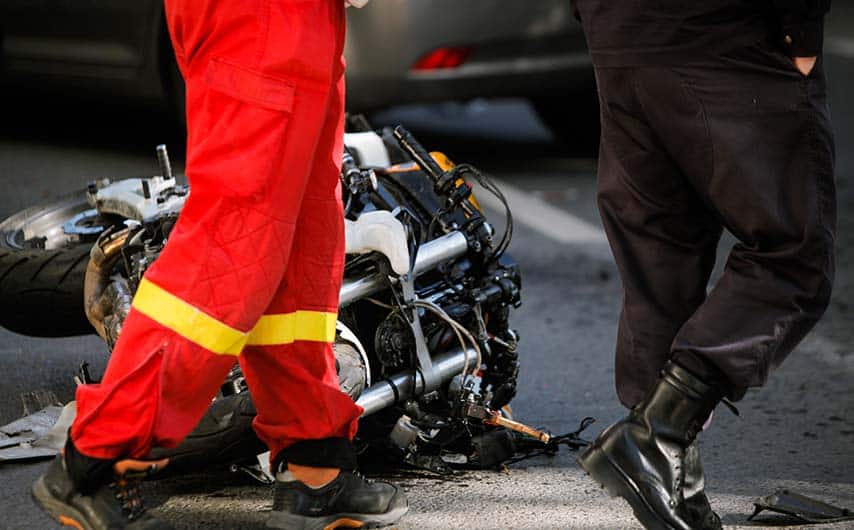Motorcycle accidents cause serious injuries, and we offer the help you need when you need it most. Carl Nagle is a fellow motorcyclist, with over 40 years of riding experience. Our firm is North Carolina's ONLY pure motor vehicle injury law firm. We only handle serious injury cases arising from roadway accidents. Carl personally handles all motorcycle accident injury cases, and we also offer the lowest legal fee of all NC personal injury law firms. We offer a free consultation now, and if you need our help, our fee is 25% of settlement – other firms charge 33.3%. Also, if you need our help, we can get started today with no up-front costs or fees. With a signature, we begin working now to protect and enforce your legal rights.


Driving a motorcycle isn't like operating any other kind of vehicle. The rush you get as a motorcycle driver is undeniable. Unfortunately, so are the risks that come with driving them. Despite only 3% of road users being motorcyclists, in 2021, there were 3,712 motorcycle accidents in North Carolina. 210 of those accidents were fatal. That means that in one year alone, dozens and dozens of families lost loved ones due to motorcycle crashes. Often, these tragic accidents aren't caused by mistakes the motorcycle rider makes. They're due to another driver's negligence.
In the event of a motorcycle accident, the probability of sustaining significant injuries is considerably higher, as even the most effective motorcycle gear can only offer limited protection. In collisions with other vehicles, we have no protection. Furthermore, the other vehicle involved in the accident will likely be much larger, increasing the chances of injury or even fatality. Although the other driver's insurance may cover some of the expenses for your medical bills and motorcycle repairs, their insurance company will make every effort to minimize the amount they have to pay. Carl Nagle is a former claims adjuster and former insurance company lawyer. He knows how to oppose insurance adjusters and avoid the insurance company's efforts to minimize your injury claims. If you've been injured while riding your motorcycle, you deserve generous compensation – but without the help of a Motorcycle Accident Injury Attorneys, you may only get a fraction of what you need.


When you're trying to recover from a motorcycle crash, finding the best Motorcycle Accident Injury Attorneys can seem like a losing effort. But when you discover that Nagle & Associates only handles roadway accident cases, you get immediate peace of mind knowing that your legal rights are fully protected. We will push for the highest settlement, and help to make sure the lion's share of that tax-free money stays with you. And if the insurance company lowballs you with an unfair offer, we will bring your case to a jury in the county where city sits County Superior Court in Raleigh, NC.
Our law firm only handles motorcycle, car, truck and other roadway accidents. This high degree of focus has helped us to master traffic laws, insurance regulations, trial practice and evidence laws, and the law of damages. We also have unparalleled experience in traumatic medicine, and we have worked directly with the best doctors and surgeons in NC. Our founder, Carl Nagle, brings valuable experience as a former insurance claims adjuster and insurance company lawyer, giving us unique insight into dealing with large insurance companies with vast resources. With two retired North Carolina State Troopers and four licensed North Carolina auto insurance adjusters on our team, we're well-equipped to pursue all legal claims arising from your motorcycle accident.
We have a strong track record of working with top crash reconstruction experts, collaborating with law enforcement to investigate accidents, and preserving crucial evidence to establish fault and legal responsibility. Moreover, we're adept at presenting medical evidence to maximize settlements and trial outcomes. We also micro-manage all financial aspects of your settlement, minimizing external claims against your settlement money, and ensuring the highest tax-free payments for our clients at the conclusion of each case.
We focus on a number of different motorcycle incidents, including the following:
At Nagle & Associates, we aim to be the authority on motorcycle accidents and insurance law in North Carolina. We know what steps to take in the aftermath of a serious motorcycle crash and how to deal with large insurance companies trying to penny-pinch you. When you choose our motorcycle accident law firm, you can sleep better at night knowing we'll obtain the largest settlement as soon as possible. We will deliver the money you need to help you put your bike accident properly into your past.
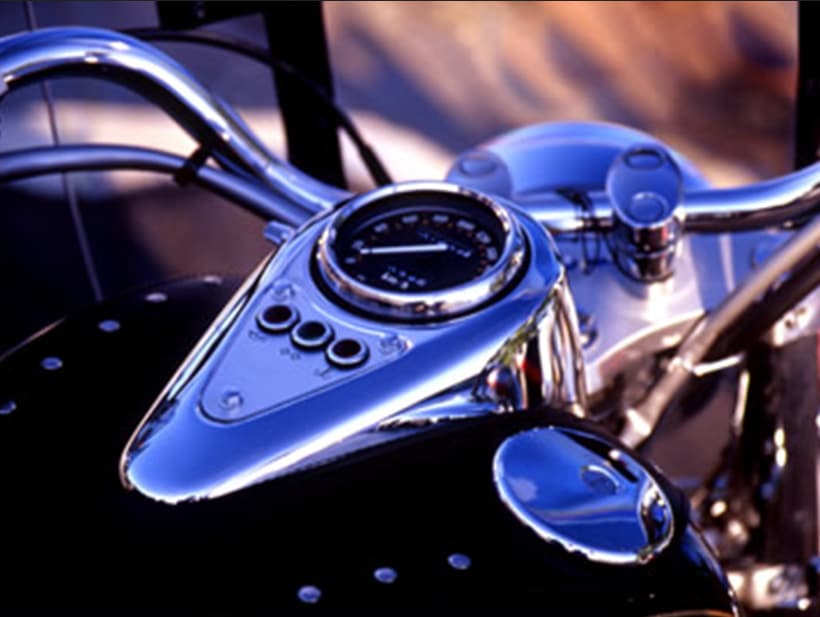
You might be thinking to yourself, “What makes Nagle & Associates the ideal motorcycle accident law firm in North Carolina?” What sets us apart from other law firms is our intense focus on auto accident cases and our unwavering client dedication. Like Joel Lane Museum House in Raleigh, NC, we stand tall for you when you're feeling low and make it a point to provide passionate representation on your behalf.
Past clients injured in motorcycle accidents recommend their friends and family members to our law firm because we prioritize the following:
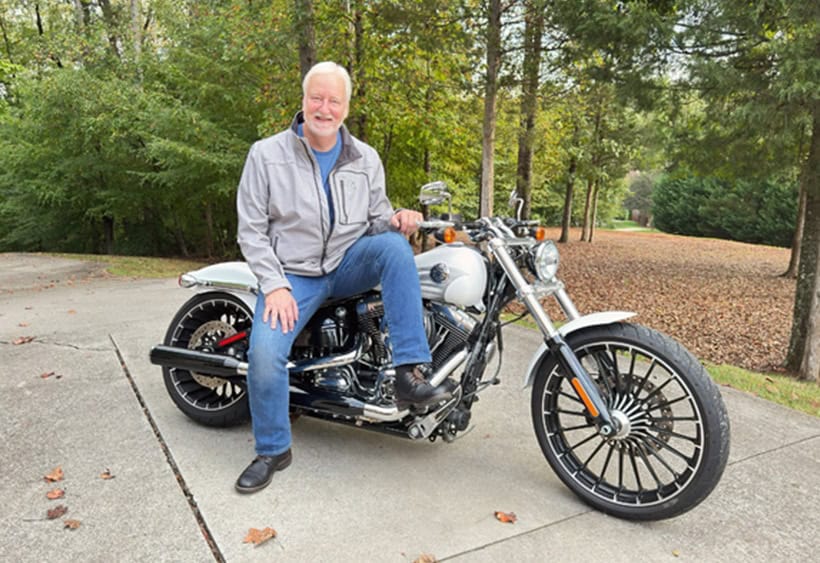
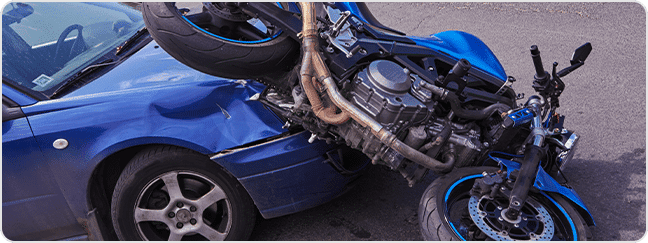
Most law firms in our state handle a wide range of cases, from divorce and criminal defense to tax and business law. Firms that only handle personal injury also handle slip & fall, dog bite, assault, premises liability, Workers Compensation and disability cases. However, our firm ONLY handles personal injury claims resulting from serious motor vehicle accidents. With decades of experience only representing motor vehicle accident victims, we've mastered the intricacies of auto accident law in North Carolina. We're dedicated to protecting your rights, establishing fault, identifying all at-fault parties, finding and accessing available insurance coverage, and securing the maximum payment for your injury claims.

Carl Nagle is an exceptional Motorcycle Accident Injury Attorneys Raleigh, NC, with extensive experience in representing crash victims who were hurt due to negligent drivers. Prior to focusing exclusively on crash victims, he worked as an insurance claims adjuster in Atlanta and served as an insurance defense attorney after graduating with top academic honors from the University of Georgia School of Law. His insurance industry experience allows him to predict and counter insurance defense tactics and push insurance companies to offer generous settlements.

We deal exclusively with cases that involve verifiable injuries resulting from serious motorcycle accidents. We're not talking about a minor incident in a parking garage. Focusing on high-value cases allows us to offer a lower legal fee for settlements and trial verdicts. Most other personal injury lawyers charge 1/3 of the settlement, but if we take on your case, you'll only be charged for 1/4. With a lower fee than our competition, your keep a larger share of the tax-free money we collect through settlement or trial. Most cases settle, but we stand ready to conduct a jury trial in your home county if the insurance company refuses to offer full value for your injuries and suffering.
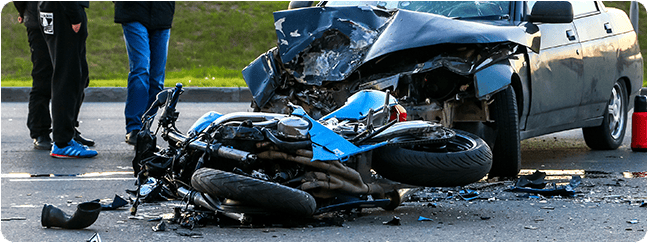
Nagle & Associates has a statewide presence, with seven offices across North Carolina. However, we truly offer a local presence for every client. We have investigators who handle crash investigations wherever collisions occur, and we conduct trials in all 100 North Carolina counties. We treat our clients like close friends and family, and it's important for us to go above and beyond for our friends and neighbors. That's why, if you're still recovering from your injuries in Independence Village of Olde Raleigh in Raleigh, NC, or you live in a remote area, we're happy to come and meet with you where you are no expense if this helps to get your case started.
Most issues that come across our desk can be resolved via phone or email. Furthermore, most cases we handle are resolved through a simple and private settlement, with no need for lawsuit filings or court intervention. Typically, that means there's no major travel involved on your end. As noted above, if your case does proceed to trial in front of a jury, we'll ensure that it takes place in your home county.
If you've been injured in a motorcycle accident in North Carolina, it's important to be aware of your rights. North Carolina statutes and case law establish valuable laws and legal rights to protect you and ensure that you receive fair treatment in the aftermath of the accident. It's essential to understand your rights as an injured motorcyclist and take active measures to safeguard them. One of the best ways to do so is to seek the advice of an experienced Motorcycle Accident Injury Attorneys in Raleigh, NC, who can help you navigate the legal process, pursue fair compensation, and achieve the best possible outcome for your case. Whether you choose our firm or another, injured riders should seek one or more free legal consultations to understand their legal rights and options before they start cooperating with insurance adjusters.
Some of the rights you have as a hurt motorcycle rider include:
You have the option to pursue compensation for your injuries by filing a personal injury claim against the responsible party. Because North Carolina uses a fault-based system which requires insurance on all registered motor vehicles, you can also get compensation from the negligent party's insurance company.

If you've been injured in a motorcycle accident as a result of someone else's negligence, you are entitled to pursue compensation for your damages, injuries, and losses. This can encompass past and future lost wages and lost earning ability, payment for past medical bills and future medical needs, and payment for pain, suffering, disability, scarring and disfigurement and lost quality-of-life. Insurance adjusters seek to minimize these payments, but we push them to pay a settlement that reflects what we would expect from a jury in your home county.

Working without a lawyer in your motorcycle compensation case is a little bit like trying to conduct your own trial with no training and no lawyer in the ---countywherecitysits------ County Superior Court in Raleigh, NC. It's exceedingly difficult. Insurance adjusters are cost control experts, and they are being paid to minimize your injury claims. They will not help you find reasons to pay you more. Instead, they will try to deny the claim entirely by placing partial blame with you. In North Carolina, if you are just 1% at fault for your accident, you have no right to compensation. If you are clearly innocent, the adjuster will still seek to pay you as little as possible. Throughout the claims process, you have the option to enlist the services of a ----Raleigh------------ Motorcycle Accident Injury Attorneys who will work to represent your interests and speak on your behalf. With their assistance, you can safeguard your rights, maneuver through intricate legal processes, and succeed in all negotiations with insurance companies to secure equitable compensation.

You have the option to seek a just resolution that fully compensates you for your injuries and losses. When you work with Nagle & Associates, our team will evaluate the complete scope of your damages and engage in discussions with the insurance company to achieve a fair and equitable settlement.
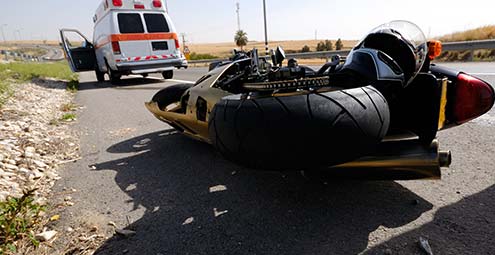
If an equitable agreement cannot be achieved through negotiations, you have the option to bring your case to trial. In this scenario, a jury will assess liability and grant damages according to the evidence that is provided.
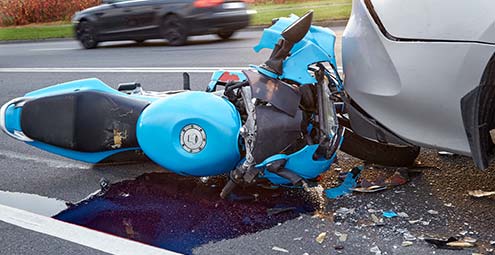
You have the right to challenge a court decision or insurance settlement if there is legal error by the judge or in the court proceedings that resulted in the unfavorable litigation result. If needed, a Motorcycle Accident Injury Attorneys in Raleigh can guide you through the appeals process and act on your behalf during your appellate proceedings.
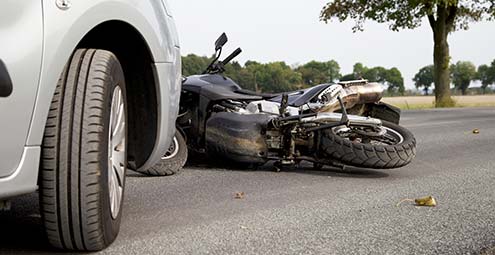
You are entitled to privacy concerning your medical records and personal details. Carl Nagle and our team of motorcycle accident lawyers always make it a point to safeguard your privacy and guarantee that confidential information is managed properly throughout your claims process.
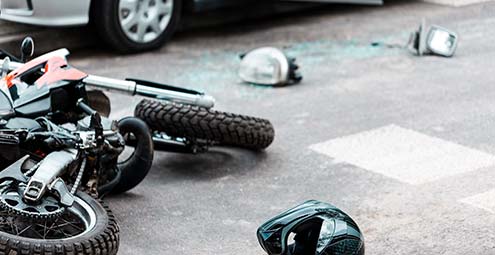
Navigating a motorcycle accident claim can seem like you're trying to complete an obstacle course at Magnolia Glen in Raleigh, NC. It involves many complexities, which is one reason why it's so important to work with an attorney who can ensure every detail in your case is covered. The legal team at Nagle & Associates will collect evidence, including medical records, eyewitness testimonies, and photographic proof. From there, your lawyer will construct a compelling case to effectively present your story and help you secure the compensation you rightfully deserve.
When you're hurt in a motorcycle wreck in North Carolina, and it's not your fault, you may be entitled to compensation. Some of the most typical forms of compensation include:

If you are unable to work due to your injuries, you might be eligible for payment for the wages you have missed and for your potential future earnings if your injuries impact your long-term employment prospects.

You may be eligible to receive payment for medical expenses incurred in the past, present, and future due to your hospital stay, injuries, medications, surgical procedures, rehab, and therapy.

This type of compensation is for the physical discomfort, mental anguish, and emotional trauma resulting from the accident and your injuries. This is tax-free money and is often the largest share of a personal injury settlement.

This includes replacing or repairing your motorcycle and any other items that got damaged in the crash, like safety gear or personal possessions.

When intentional misconduct or extreme and reckless conduct results in a motorcycle accident, courts sometimes award you punitive damages. This additional compensation is meant as a punishment for the at-fault individual(s) and is also designed to deter similar behavior in the future.

One of the saddest consequences of motorcycle accidents is that they often leave the victim disfigured or disabled for the rest of their life. If your emotional well-being, quality of life, and ability to work are permanently impacted due to no fault of your own, you are entitled to compensation for this unfortunate experience.

In fatal motorcycle accident cases, surviving family members have a right to pursue a wrongful death case on behalf of the fatally injured motorcycle rider. The compensation from a wrongful death case is designed to provide financial assistance to surviving dependents, and to pay family members for the lost relationship, the loss of services and companionship of the decedent, and other damages incurred by the family due to the fatal bike crash.
To receive the full compensation you deserve as soon as possible, consult with the knowledgeable attorneys at Nagle & Associates Motorcycle Accident Injury Attorneys in Raleigh. We will thoroughly investigate your case, manage adjusters who oppose you, build and present compelling medical evidence of your injuries, negotiate with insurance companies, and advocate for your interests in court when necessary.
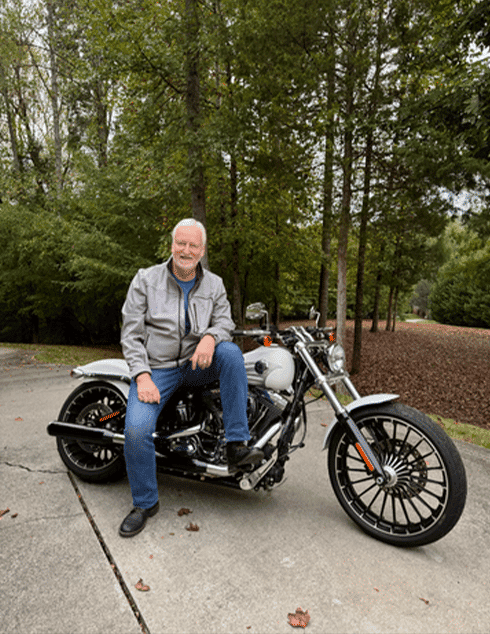
It doesn't take a graduate from North Carolina State University in Raleigh, NC to know that talking about roadway crash injuries is an uncomfortable subject. That's especially true when motorcycles are involved, because they're often the most gruesome and fatal.
Here are just a few of the most common types of injuries that motorcycle drivers recover from:
When you are hit in a motorcycle crash and fall off your bike, you often skid on the road surface, causing lacerations, abrasions, and severe skin damage.
Serious head injuries are both common and severe in motorcycle crashes. Wearing a helmet can reduce the risk of damaging your brain or skull, but it's not a foolproof solution. Severe traumatic brain injuries often occur, even when bikers wear full face helmets.
Accidents involving motorcycles often result in internal injuries like harm to organs, internal bleeding, and injuries to the abdomen or chest.
Injuries to your spinal cord can vary in severity, ranging from minor contusions to the spinal cord to severe damage that can result in paralysis or lifelong disabilities.
Motorcycle collisions frequently cause fractures and joint injuries, such as joint dislocations and broken bones in the legs, ribs, arms, and pelvis.
Motorcycle accidents have the potential to cause a range of psychological injuries, including post-traumatic stress disorder (PTSD), which can manifest as intrusive thoughts, nightmares, and hypervigilance. Motorcycle crash victims may also experience heightened anxiety, characterized by feelings of unease, restlessness, and worry.
Though motorcycle drivers must wear helmets in North Carolina, headgear can only do so much for you when you're hit by another motorist. Injuries can vary from small cuts and bruises to serious facial damage, such as dental injuries and harm to the jaw or eyes.
In the immediate aftermath of a motorcycle accident, there are some general rules you should follow. Think before you speak. Don't accept guilt, even if the crash was your fault. Avoid sharing details on social media or discussing your case with anyone except your Motorcycle Accident Injury Attorneys in Raleigh, NC, or your doctor. Lastly, refrain from making any statements to the media if they show up at the scene.
If you or a family member has been injured in a motorcycle accident in North Carolina, please reach out to us for an immediate, complimentary legal consultation. Our seasoned attorneys can provide valuable guidance over the phone on how to safeguard your legal rights, dodge insurance adjuster defense tactics, and secure the compensation you deserve.
Beloved weekend anchor Anthony Wilson signed off on the weekend morning show for his final time thanking his family, colleagues, and ABC11 viewers.RALEIGH, N.C. (WTVD) -- It was an emotional Sunday morning inside the Raleigh Eyewitness News Center.Beloved weekend anchor Anthony Wilson signed off on the weekend morning show for the final time - thanking his family, colleagues, and the ABC11 viewers.After admittedly a few tears were shed and we were off the air - we sat down with Anthony to reflect on his decision to retir...
Beloved weekend anchor Anthony Wilson signed off on the weekend morning show for his final time thanking his family, colleagues, and ABC11 viewers.
RALEIGH, N.C. (WTVD) -- It was an emotional Sunday morning inside the Raleigh Eyewitness News Center.
Beloved weekend anchor Anthony Wilson signed off on the weekend morning show for the final time - thanking his family, colleagues, and the ABC11 viewers.
After admittedly a few tears were shed and we were off the air - we sat down with Anthony to reflect on his decision to retire after more than 50 years working in media.
"I decided a year ago to actually step back because I've been at this for a while," he said. "I can actually mention some dates now. I was in college in 1975, ancient times."
Going on to work in radio and television, and working in places like New Orleans, New Jersey, Winston Salem, and in the Triangle; Wilson has filed thousands of stories and touched the lives of so many.
He's mentored countless journalists at North Carolina A&T and through the National Association of Black Journalists.
ALSO SEE: NCCU men's basketball coach Moton, Chancellor Dixon honored this weekend in Durham
As he said goodbye, hundreds of people reached out on social media to thank him for his years of service.
"It's just really nice that people even felt the need or felt motivated to say anything at all," Wilson said. "To me, this is another stage in my personal life which I'm looking forward to, and I don't expect people to make a big deal about the fact that I'm leaving"
He said there are things he won't miss, like the heavier days on the job.
"Talking to people on the worst day of their lives," he said. "In some cases, that is difficult for us. They don't know that. That's always difficult for us as it is for them... So I don't miss that much."
But there's plenty Wilson said he will miss. Especially the people he's had the opportunity to work with all these years.
"We have a camaraderie in this business, even with our so-called competitors," he said.
And the big question: What's next?
"Sleeping late, staying up late," Wilson said.
You might be surprised to know this morning show journalist is actually a bit of a night owl. So, he'll be staying up a bit later, traveling, going to the movies, seeing live music, and of course spending more time with his family.
And though he isn't leaving the Triangle - his final days here at ABC11 are certainly bittersweet.
Copyright © 2024 WTVD-TV. All Rights Reserved.
READ MOREHurricane Helene swept across the Southeast, causing major flooding and destruction throughout North Carolina. The News & Observer and the Charlotte Observer have a collection of stories about Hurricane Helene and the damage it left, particularly in Western North Carolina.Expand AllAs a key IV fluid manufacturer in the North Carolina mountains works to rebuild after Hurricane Helene, medical facilities around the country are bracing for shortages.A McDowell County plant, operated by Baxter Healthc...
Hurricane Helene swept across the Southeast, causing major flooding and destruction throughout North Carolina. The News & Observer and the Charlotte Observer have a collection of stories about Hurricane Helene and the damage it left, particularly in Western North Carolina.
As a key IV fluid manufacturer in the North Carolina mountains works to rebuild after Hurricane Helene, medical facilities around the country are bracing for shortages.
A McDowell County plant, operated by Baxter Healthcare Corp., is closed due to flooding. Heavy equipment can’t reach the site because of a bridge failure that may take weeks to repair.
Until then, Baxter is limiting what its customers can order according to available inventory and medical necessity.
IV products that will be rationed include:
Baxter, which opened its North Carolina plant in 1972, says it is the largest manufacturer of these solutions in the United States.
The American Hospital Association says before the storm, the plant produced 1.5 million bags of IV fluid daily — 60% of the nation’s supply.
Gregory Pauly, president of Duke University Hospital, said on Friday that teams across the university’s health system are impacted by the shortage.
“Our teams have been working to assess inventory, deploy conservation strategies, and triage future distribution in an equitable manner across the health system,” Pauly said in a statement shared with The News & Observer.
“At this time, we are making case-by-case assessments of our ability to safely perform certain surgeries and procedures going into the weekend and next week.”.
The Food and Drug Administration said last week it was monitoring the situation and working with Baxter to try to increase production at its other facilities as well as trying to find other sources of the fluids. But as of Sunday, the FDA had not declared a shortage.
Baxter’s IV manufacturing plant is located in the North Cove township near Marion, a heavily damaged area that was lashed with rain when the remnants of Hurricane Helene swept through Sept. 27.
The state climate office reports more than 12 inches of rain fell on the area in just three days.
Baxter said a levee breach allowed water to permeate its plant.
Roads leading to the site are damaged, but Baxter said Thursday that 500 workers were already at the plant working on repairs.
“We expect this number to double in the week ahead,” the company said in a news release.
A bridge failure has prevented heavy equipment from reaching the plant, and made it impossible to deliver inventory that wasn’t damaged in the storm.
“We expect a permanent bridge will be installed by the Army Corps of Engineers and North Carolina Department of Transportation in the coming weeks,” the company said in the Thursday update.
Baxter reports it’s been able to contact most of its 2,500 employees, and that it’s established assistance center a few miles from the plant. There, staff can take showers, wash clothes, charge devices and receive food, water and other basic supplies.
“We will spare no resource — human or financial — to resume production and help ensure patients and providers have the products they need,” president and CEO José Almeida said in a news release the morning after the storm.
The company said it will work with the FDA to “leverage Baxter’s global manufacturing network” until the Marion facility is back operating at 100% capacity.”
The News & Observer
Mary Helen Moore covers Durham for The News & Observer. She grew up in Eastern North Carolina and attended UNC-Chapel Hill before spending several years working in newspapers in Florida. Outside of work, you might find her reading, fishing, baking, or going on walks (mainly to look at plants).
Quarterback Grayson McCall lay flat on a red spine stabilizer board, a green cart taking him off the field one drive into N.C. State’s game. He lifted his hand to the crowd, acknowledging the fans, teammates and coaches after they watched him take a hit to the head that appeared to leave him briefly unconscious.One drive later, led by freshman backup CJ Bailey, the Wolfpack scored a 35-yard field goal and picked up four first downs. The Pack has struggled on offense all year, but it took the field after McCall’s injury wit...
Quarterback Grayson McCall lay flat on a red spine stabilizer board, a green cart taking him off the field one drive into N.C. State’s game. He lifted his hand to the crowd, acknowledging the fans, teammates and coaches after they watched him take a hit to the head that appeared to leave him briefly unconscious.
One drive later, led by freshman backup CJ Bailey, the Wolfpack scored a 35-yard field goal and picked up four first downs. The Pack has struggled on offense all year, but it took the field after McCall’s injury with a seemingly new motivation: playing for one of its leaders.
Eventually, the Pack took a 10-point lead in the fourth quarter. Then things unraveled.
N.C. State fell to Wake Forest 34-30 after the Demon Deacons (2-3, 1-1 ACC) scored on a late-game touchdown. It was the the Wolfpack’s best offensive performance of the fall, but even that wasn’t good enough, as the team picked up its second loss in league play.
“We didn’t finish, didn’t make enough plays to close the game out and had opportunities,” Wolfpack head coach Dave Doeren said. “It’s offense, defense, special teams. It is no one side of the football. You’ve got some guys down there that are really upset and some coaches that feel the same way.”
The Wolfpack (3-3, 0-2 ACC) recorded 419 yards of total offense and tied its season high with 28 first downs. Bailey finished 28 of 42 on passes, with 272 yards and two touchdowns. But an interception on the team’s final play of the game sealed the fate and ended a chaotic afternoon.
The rookie was thrust back into the starting role after McCall’s second injury of the season and Doeren praised the young player for what he provided to the team.
“I thought he came in the game with poise, and he gave us a chance to win the game,” Doeren said of Bailey. “Made a lot of nice plays with his arm, with his legs. He was a good leader on the sideline. I know he’s down for throwing a pick there in that last drive, but CJ didn’t lose that football game. He did a lot of good things today.”
The Wolfpack thought this was the year to win at least 10 games and potentially earn a spot in the expanded College Football Playoff. Both things could still happen, depending on how things go in other areas of the league, but the loss makes those goals more difficult to reach.
Cornerback Aydan White said the message in the locker room is to stick together and block out the outside noise.
“We’ve just gotta finish. That’s what we didn’t do,” White said. “Up 10 points in the fourth quarter and didn’t finish the game. That’s what it comes down to.”
Here are four takeaways from the rivalry loss.
Offensive coordinator Robert Anae told reporters during fall camp that the goal this season was to spread the ball. It hadn’t truly done that this season, but things seemed to click against the Deacs.
At halftime, N.C. State had 216 passing yards, with eight different receivers making at least two catches. True freshman Keenan Jackson recorded his first career touchdown with 11 minutes, 30 seconds remaining in the second quarter. He had three stretches of at least six straight completions. The Wolfpack finished with 271 total yards in the half.
Entering the game, Doeren said the pass game hadn’t been what the team was hoping for.
“I think part of that is what’s transpired at quarterback; not blaming CJ at all,” Doeren said on Thursday. “I think CJ is getting better, but you can’t put the entire system on a freshman, either. … It’ll be CJ’s third game. He’ll be more experienced than he was in his first and his second, so you can grow on the things that he’s experienced in those games.”
Doeren reiterated on Saturday that he believes in Bailey. He didn’t look like a true freshman at times and made some clutch throws. Bailey added three passes of 22 yards or more.
There’s still more work to be done — a handful of deep passes were incomplete — but there was progress.
“I know he’s down on himself, and I told him that he’s going to make a game winning play here in the next game, and the guys are going to play hard for him,” Doeren said. “He delivered today in a lot of drives. He did some really good things for a true freshman, you know, didn’t look like a true freshman at times, and made some nice throws. CJ has got a bright future.”
N.C. State’s early second-half effort on defense deserves praise for flipping the field and helping the offense get back on the field.
The Pack forced turnovers on two straight second-half drives. Linebacker Sean Brown contributed a strip sack, before safety Bishop Fitzgerald intercepted a pass from Deacs QB Hank Brachmeier.
Then, N.C. State added a pair of forced fumbles, three pass breakups, an interception, three sacks, and 12 quarterback hurries — including a third-down tackle by Caden Fordham.
White said the defense reminded Bailey it would make plays for him.
“Defense is gonna go out there and play the same (whether) Grayson was out there or not,” White said, talking about the message to Bailey. “(We just told) CJ we got his back no matter what happens.”
Unfortunately, the offense did not score on the takeaways, and its efforts weren’t enough down the stretch.
Offensive lineman Tim McKay acknowledged the offense’s failure to capitalize on the two turnovers, saying the defense gave it chances to score. While N.C. State added a pair of touchdowns on following drives, McKay said his squad should’ve been more angry after the first failed turnover opportunity, and it shouldn’t have taken two missed opportunities.
“The offense went out there and didn’t respond, didn’t score points, happened multiple times,” McKay said. “Going forward you need to do a better job playing complementary football.”
Still, the Pack was in position to win and the defense didn’t hold at the end. It failed to recover a fumble and dropped an interception. It allowed Wake Forest to extend drives, leading to a game-winning touchdown with 1:01 left to play.
“I think we just stopped playing, stopped playing together, and we stopped just communicating,” White said. “That’s what ended up happening on the last couple downs. There’s no communication by us, and they end up making the plays that we should have made.”
N.C. State had little success on third-down conversions entering the game. It ranked 104th in FBS on third-down conversions (20 of 59) after finishing 1 of 11 against Northern Illinois last Saturday. Those numbers were much improved against Wake, with the Pack finishing 8 of 15 on third down.
Doeren said part of the struggles come from the first- and second-down offense. When it’s not moving the ball efficiently — which it isn’t consistently — it’s statistically much harder to get a first down on third-and-8 or third-and-9.
Penalties were an issue, as well. The Pack has averaged 46.8 yards of penalties per game. It’s one of the more disciplined teams in the nation, but N.C. State had five penalties against Wake.
“They’re calling more holding now than I’ve ever seen, and we’ve got to be able to play well within that and know how they’re calling it. … You have a 15- or a 20-yard gain, and now instead of first and 10, it’s first and 25; second and 15. Whatever it ends up being, it’s a drive killer. We’ve got to be better fundamentally, not having our hands in positions where we’re getting called for those.”
N.C. State finished with 52 yards in penalties, but only one impacted the down and distance.
With the team making better progress on early downs and fewer penalties, the Pack was in better positions to convert on the third-down attempts.
Consistency in this area will make a big difference going forward.
Injuries are starting to pile up for the Wolfpack. The program boasts competitive depth — it’s why Doeren had no problem switching up the depth chart — but it’s fair to have concerns about the team’s long-term health.
Excluding McCall, the Wolfpack had four regular contributors unavailable due to injury. Running back Hollywood Smothers missed a second straight game.
Offensive lineman Val Erickson and wide receiver Dacari Collins missed the game. Cornerback Brandon Cisse had a minor injury earlier in the season and returned, but he did not participate in warmups and was seen with a cast on his left forearm.
Safety Devan Boykin has yet to return — Doeren hoped to have him back this month — after sustaining an ACL injury in bowl game preparation last December.
N.C. State’s depth is OK for now, but it could be a cause for concern.
This story was originally published October 5, 2024, 11:31 AM.
In any given televised football game on any given Saturday or Sunday, violent replays are a part of the spectacle and maybe the allure. The devastating sack of a quarterback. A linebacker who meets a running back or receiver at full speed, and creates a turnover. It has long been part of the culture and draw of the sport: the big hits and the ogling of those big hits.The oohs and the aahs and the “hope-he’s-OKs,” because that looked rough.“But he’s up,” so goes the usual relief....
In any given televised football game on any given Saturday or Sunday, violent replays are a part of the spectacle and maybe the allure. The devastating sack of a quarterback. A linebacker who meets a running back or receiver at full speed, and creates a turnover. It has long been part of the culture and draw of the sport: the big hits and the ogling of those big hits.
The oohs and the aahs and the “hope-he’s-OKs,” because that looked rough.
“But he’s up,” so goes the usual relief. “Back in the huddle, somehow.”
Good. Onto the next play.
There was no next play on Saturday for N.C. State quarterback Grayson McCall. And there was no replay during the broadcast on The CW. That choice alone should tell you how bad it was and how concerning; how downright scary — so much so that TV, which often knows no limit to the football violence it’s willing to share and reshare, found this moment too much to show again.
Seeing it live was enough. And it would have been enough to see it live had it concerned any player, at any school, but that it was McCall made the moment especially alarming, given his history of football-related head trauma. The blows to the head that McCall sustained Saturday against Wake Forest — on a legal, within-the-rules play —looked a lot like what he experienced almost a year ago, on his final play of the 2023 season.
The immediate reaction, at least, was identical: teammates waving for medical personnel to rush onto the field, their concern evident in their urgency. The CW made the correct call Saturday in not showing the play again, with broadcaster Thom Brennaman only alluding to “hits ... to the head area” that McCall suffered.
For anyone watching, though, everything spoke for itself: that McCall’s helmet went flying after several Wake Forest defensive players converged upon him after he scrambled up the middle; that he immediately fell to his side, motionless; that his teammates instantly called for medical help; that a hush fell over the crowd at Carter-Finley Stadium.
The collision dislodged the ball, too, and the Demon Deacons returned the fumble about 80 yards, close to the Wolfpack goal line. It was a significant play. But, really: Who could care about that, with McCall still on the ground? Who could care about football, with his parents already out of the stands and on the field, watching medical personnel load their son onto a stretcher and then onto the back of the cart that carried him away?
It would have been a devastating scene for anybody, but especially for McCall, who was transported by ambulance to the hospital. It was devastating especially because everything about Saturday — right down to the “I think I’ll be OK” gesture he (thankfully) provided while he was carted off — looked so much like what he went through last Oct. 21 during a game at Arkansas State.
McCall then was the quarterback at Coastal Carolina, a small-school, stats-accumulating marvel at that level. There wasn’t a pass he was afraid to attempt, or a scramble too daring, and with Coastal leading by a touchdown early in the fourth quarter at Arkansas State, he took off up the middle. He took off exactly as he took off at Carter-Finley on Saturday: with a hopeful burst, seeking a first down.
Then, like Saturday, the defense soon met him. Then, like Saturday, he sustained a violent blow.
Then, like Saturday, his teammates recognized the gravity of it all. They called for help.
Then, like Saturday, the trainers and other medical personnel rushed to the field.
Then, like Saturday, McCall left the field on a stretcher, on the back of a cart.
McCall didn’t play another down after that hit last season. It’s fair to question whether he should’ve played at all this season, after that blow last October and the reality that it kept him from playing in another game. Back in July, during the ACC’s annual preseason kickoff event, McCall acknowledged that there was “so much going through my head about what the future looked like and what my plans were” after that season-ending hit at Arkansas State.
Was he worried about taking another severe hit?
Did he think about the potential consequences of such a thing? That his long-term health could be at risk? Did he think about the potential cost of a game, he said then, that had “changed my family’s life?” As to how much he thought of the risks, the answer came quickly:
“I don’t, man,” McCall said then, months before the start of this season. “I think if I have that mindset, it will just hinder me. I think I’ve got to go out there and just let it rip.
“Play fast and prepare myself and put myself in the best possible position to stay healthy.”
There wasn’t anything wrong with the answer. It’s understandable, in a sense, for a player with lofty football dreams; one who before this season was likely hanging onto a goal of playing professionally, or at least of playing well at a higher level of college football. But still, it makes you wonder: If McCall really wasn’t thinking of football’s potential long-term consequences, then who around him was?
His family had to be concerned with such things. His loved ones. At N.C. State, meanwhile, McCall was welcomed as an incoming transfer who could make a difference. He was welcomed as a missing piece and, indeed, he played on Saturday the way he way he wanted to play: fast.
He played fast, in pursuit of a first down. He played fast, in his first game back after another undisclosed injury, one he suffered earlier this season during a Wolfpack victory against Louisiana Tech on Sept. 14. He played fast, trying to give the Wolfpack its best chance to win. He played in a way to be admired, on the one hand.
On the other, it was fair to wonder whether he should’ve been playing at all.
This story was originally published October 5, 2024, 2:58 PM.
The News & Observer
Andrew Carter spent 10 years covering major college athletics, six of them covering the University of North Carolina for The News & Observer and The Charlotte Observer. Now he’s a member of The N&O’s and Observer’s statewide enterprise and investigative reporting team. He attended N.C. State and grew up in Raleigh dreaming of becoming a journalist.
U.S. Sens. Thom Tillis and Ted Budd said Friday that an active-duty military leader should be assigned to oversee the rescue and recovery efforts in Western North Carolina.After President Joe Biden approved up to 1,000 U.S. Army soldiers stationed at Fort Liberty to assist with the response to Hurricane Helene on Wednesday, the first 400 active-duty troops arrived in the region on Friday, the Federal Emergency Man...
U.S. Sens. Thom Tillis and Ted Budd said Friday that an active-duty military leader should be assigned to oversee the rescue and recovery efforts in Western North Carolina.
After President Joe Biden approved up to 1,000 U.S. Army soldiers stationed at Fort Liberty to assist with the response to Hurricane Helene on Wednesday, the first 400 active-duty troops arrived in the region on Friday, the Federal Emergency Management Agency said.
In a statement Friday evening, Tillis and Budd said the National Guard along with local, state and federal first responders had been “working tirelessly to respond to this disaster with the resources they have,” but added that the response could be aided by an active-duty military leader being assigned to the effort.
“Given the unprecedented extent of the devastation and complexity of search and rescue operations, it would be helpful to assign an active-duty military leader who has extensive experience with operations of this magnitude to lead moving forward,” both senators said.
In a post on social media, meanwhile, Budd said that the deployment of the remaining activated troops from Fort Liberty needed to speed up.
The U.S. Department of Defense said Wednesday that the troops it had authorized to assist with the response were “assembling and moving to the affected areas within the next 24 hours.”
“It has been two days since President Biden authorized 1,000 troops to aid North Carolinians,” Budd wrote on X. “Less than half have been deployed from Fort Liberty to Western NC. There’s no time to waste.”
On Friday, FEMA announced that 400 active-duty soldiers had arrived in the western part of the state to help deliver critical supplies like food and water to distribution sites, and were “prioritizing survivors in hard-to-reach areas along the route.”
FEMA Administrator Deanne Criswell, who has been on the ground in Western North Carolina, said in a statement that soldiers from the 18th Airborne Corps, including members of the 82nd Airborne Division and other units from Fort Liberty, were supporting the relief effort, including by providing command and control personnel, transportation, infrastructure support, supplies and services, fuel and other support to people.”
The active-duty troops along with National Guard members are under the command of Brig. Gen. Charles Morrison of the North Carolina National Guard, who has been appointed as the dual-status commander for the state, a U.S. Army spokesperson told The News & Observer.
The dual-status commander has authority under law to command both active-duty and National Guard troops, and can serve in federal and state statuses at the same time, the spokesperson said.
Ahead of additional troops arriving on Friday, the N.C. National Guard sent seven heavy-lift CH-47 Chinook helicopters it received from the 18th Airborne Corps at Fort Liberty to Western North Carolina.
Capt. Tim Marshburn, a spokesman for the N.C. National Guard, said the helicopters were sent to Asheville, from where they would be directed to other parts of the region as needed.
Marshburn said Friday morning that the helicopters were “engaged in commodity deliveries and rescue and recovery efforts,” and said those soldiers “will be activated for as long as the mission requires.”
As part of those efforts, the N.C. National Guard said in a social media post that its soldiers and airmen were breaking down and preparing pallets carrying more than 80,000 pounds of food and water that had been flown to a logistics hub in Asheville by the U.S. Army and Air Force, and would be delivered by troops with the 82nd Airborne Division.
In the week since Helene barreled through the state, more than 1,200 N.C. National Guard soldiers and airmen have responded to Western North Carolina to conduct search and rescue operations and transport critical supplies to the area, Gov. Roy Cooper’s office said.
The N.C. National Guard’s efforts have included 417 specialized vehicles and 26 aircraft that had been deployed to support those operations as of Friday, his office said.
In the meantime, N.C. National Guard leaders were “actively engaged in planning the best way to use the engineers coming from our active component,” and active-duty soldiers that had yet to deploy were “preparing with rehearsals and developing movement and load plans,” Marshburn said.
Marshburn had not responded to additional questions about how many active-duty troops remained at Fort Liberty, and what kind of assistance they will be able to provide when deployed, as of Saturday morning.
Get the latest news about North Carolina politics from The News & Observer's award-winning team. Get the free digest sent to your inbox by signing up here.
This story was originally published October 5, 2024, 12:21 PM.

